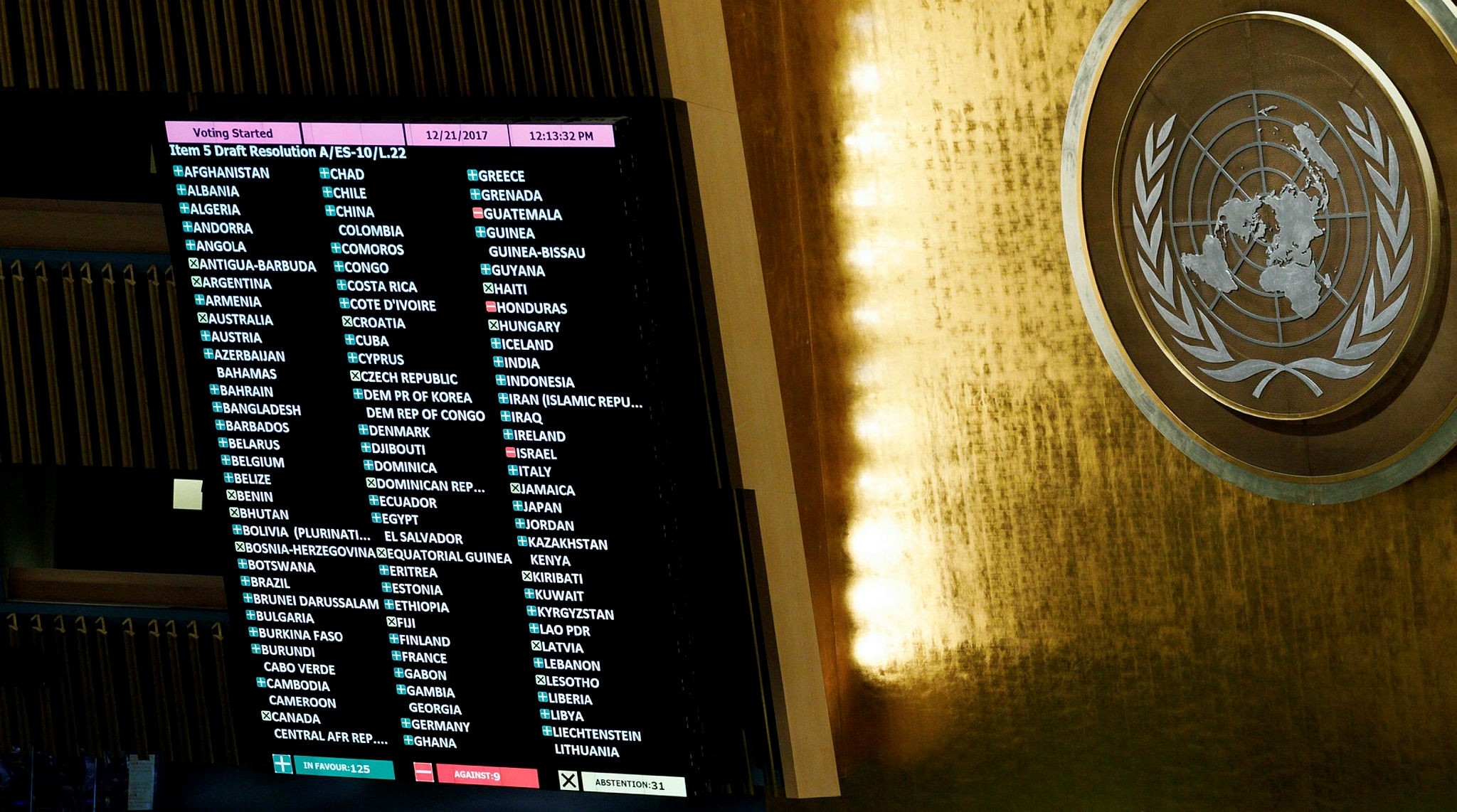
In a surprising turn of events, Bosnia and Herzegovina abstained from voting in a United Nations resolution which rejected United States President Donald Trump's controversial move to recognize Jerusalem as Israel's capital.
The Muslim-majority Balkan country, which has historical ties with the region as both Bosnia and Palestine were both constituent parts of the Ottoman Empire, took a surprise decision and failed to reject Trump's move during the voting late Tuesday.
Local media had reported earlier that the President of the autonomous Republic Srpska, Milorad Dodik urged the tripartite Bosnian presidency to support Trump's decision.
"In the light of the delicacy of the years-long problem between Israel and Palestine, and in the light of President Donald Trump's decision to move the U.S. diplomatic mission to Jerusalem, I urge you… to do all that is necessary that the head of the Bosnia and Herzegovina mission to the U.N. does not support the resolution," Dodik was quoted as saying on the Balkan Insight website.
"Republika Srpska and Israel have friendly relations and any diplomatic action by Bosnia that could endanger this friendship should be prevented," the website added.
The U.N.'s history regarding the Palestine issue dates back to 1947, a year before Israel was founded. Since that day, the U.N. has released nearly a hundred resolutions in relation to Palestine and its conflict with Israel, the first one of which is the recommendation of the partition plan in 1947 with Resolution 181. The U.N. opted for a special status, as Jerusalem is holy to Jews, Christians and Muslims.
Although Israel has been a member of the U.N. since 1949, Palestine is only an observer state, which it became in 2012.
During the 1948 Arab-Israeli war, Zionist forces declared west Jerusalem part of Israel, ignoring the U.N. recommendation.
In the 1967 Six-Day War, Israel again targeted Jerusalem, taking control of the eastern part of the city, which was previously under Jordanian control.
Israeli authorities intentionally extended the law to bring Jerusalem directly under the country's jurisdiction, which many considered a breach of international law.
Israel then passed the Jerusalem Law in 1980 to officially annex east Jerusalem. This law was declared null and void by U.N. Resolution 478, which was immediately passed as a response to the Israeli move.
The U.S. has long had a major role in the conflict, launching issue-specific committees such as one on the condition of Palestinian refugees. It also became the de facto mediator for many peace attempts between the parties, the latest of which took place in 2002, and failed like previous attempts.
The U.S.' veto on Tuesday, the sole dissenter of the 15-member UNSC, has left the U.S. alone in the international arena. In addition, the shift in longstanding U.S. policy on Jerusalem has sparked angry demonstrations in the occupied Palestinian territories and many Muslim countries.
